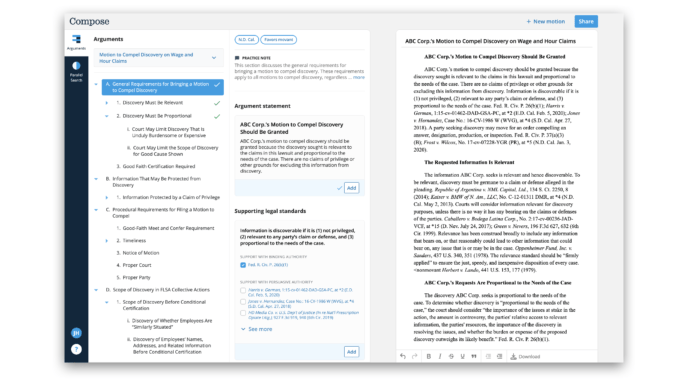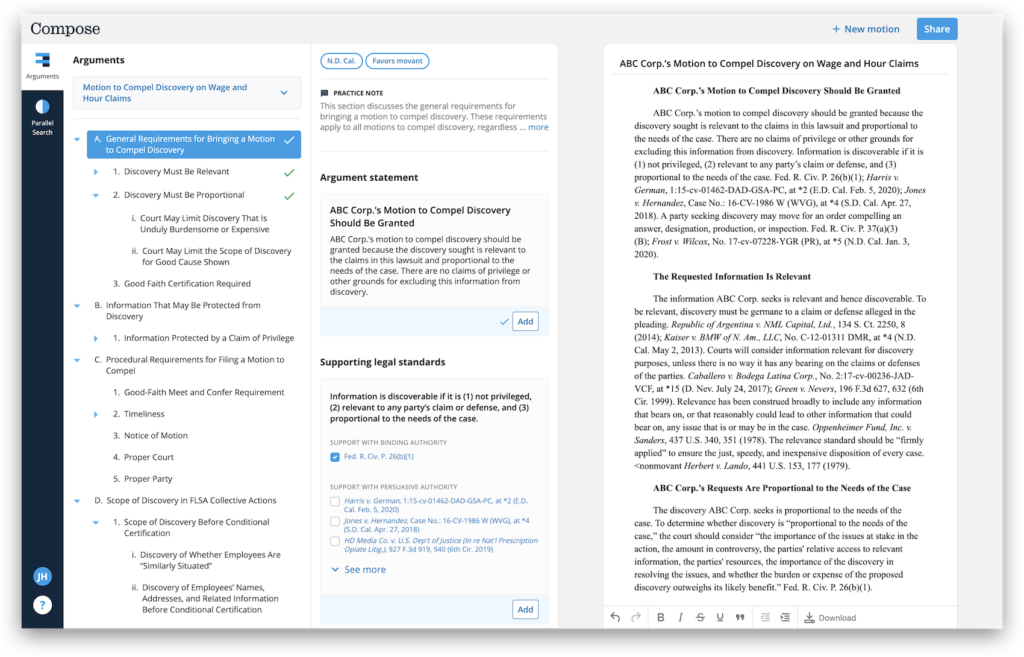
Following the launch of its NLP-driven Compose brief drafting capability in February, Casetext is boosting its offering with an added module focused on employment law, especially disputes related to wage and hour issues.
To give this some context, what Compose does is that it auto-generates a list of all arguments and related legal research data that will be relevant to writing a certain type of brief. You then click on what you want to add to your brief and can then rapidly build your document.
Or as the company explains: ‘Compose enables an attorney to construct a well-supported legal argument in 20 minutes. You simply enter basic information about the brief you want to draft and Compose provides the available arguments and applicable legal standards, which you can add with a click.’
Jake Heller, CEO of Casetext, said during a demo of the feature seen by Artificial Lawyer that one of the drivers for the new module was that ‘a lot of our users have big employment law needs’, and so it made sense to drill down further into this area.
Now, with the added Wage and Hour module, which was trained in employment law via NLP and machine learning technology and paired with attorney expertise, Compose specifically covers 16 of the most commonly-filed Wage and Hour motions, related to:
- Motions to Compel Arbitration
- Motions to Compel Discovery
- Motions for Class Certification (both Conditional Certification and Decertification under the FLSA, and Certification under Rule 23 for hybrid actions, in federal court)
- Motions for Summary Judgment

The Compose Employment Collection will immediately be available to Compose clients, which include Ogletree Deakins, the first employment law firm to leverage the technology, the US-based company said.
‘We quickly saw the value and potential Compose could offer our clients in terms of delivering efficiency and quality work product,’ noted Flyn Flesher, Senior Manager of KM Counsel at Ogletree Deakins, in a statement sent via Casetext.
Heller concluded: ‘The volume of work and the clients’ expectations for efficiency make employment law the perfect fit for Compose. For a long time, people have assumed that researching and laying out the legal argument requires many hours of up-front work, and firms have had to write off time and reduce rates in order to meet clients’ expectations for efficiency.‘
In short, this is being driven by economics.
Note: A recent study that the company organised showed significant time savings from using Compose.